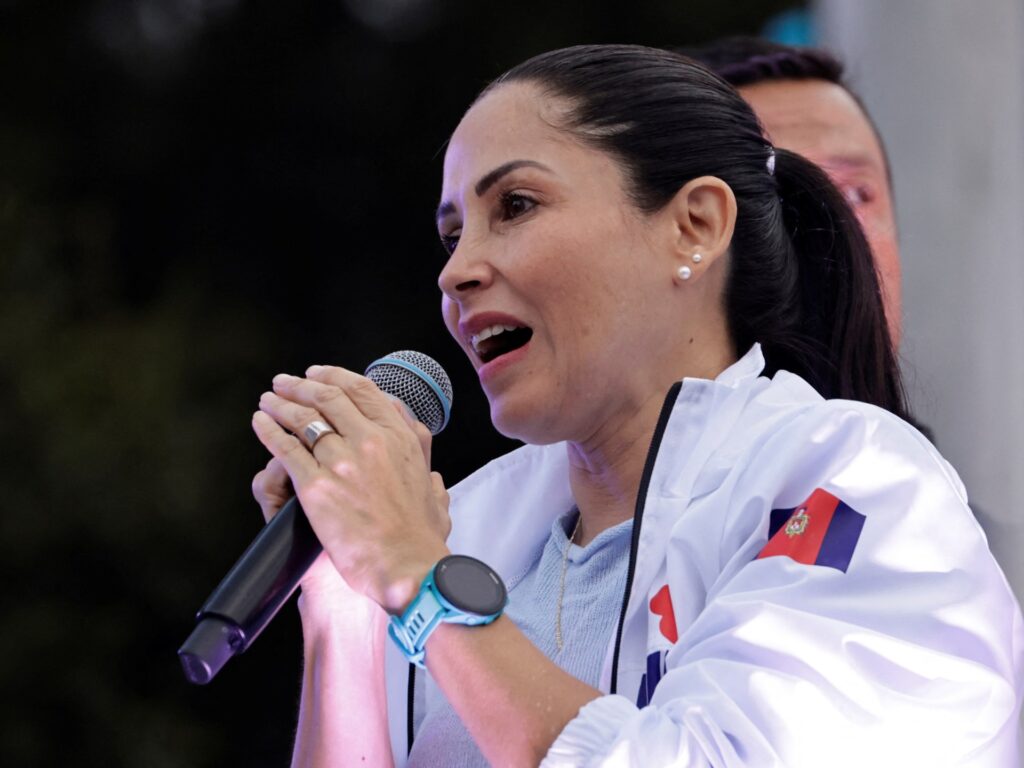Still, even voters who reject Correa’s legacy might be inclined to vote for Gonzalez out of disillusionment with the status quo.
President Noboa has faced criticism for human rights abuses and executive overreach during his short term in office. Some even say he has flashed an authoritarian streak, just like Correa.
Voting is compulsory in Ecuador, and voters demonstrated their displeasure at the polls in the first round of this year’s presidential race. Null and blank votes made up nearly 9 percent of the total ballots cast — a sign of deep voter dissatisfaction.
Political consultant Jacobo Garcia believes this segment of the electorate may lean towards Gonzalez, not because of her campaign, but due to growing frustration with Noboa.
“What could tip the balance,” he said, “isn’t support for Gonzalez, but the perception that Noboa’s campaign has lost steam and made critical mistakes.”
Some Indigenous leaders who once clashed with Correa are also backing Gonzalez for similar reasons.
“The alternative is worse,” Gomez, the Kitu Kara activist, said. “This is about defending our territories and lives from a government that has shown open disregard for Indigenous rights.”
In late March, the Confederation of Indigenous Nationalities of Ecuador (CONAIE) — the country’s largest Indigenous organisation — also struck an agreement with Gonzalez.
It endorsed her, on the condition that she accepted a 25-point platform that included pledging to repeal Noboa-era decrees that CONAIE felt were anti-Indigenous.
“We’re not joining a campaign. We’re demanding action on Indigenous rights, environmental justice, and an end to criminalising defenders,” said Gomez.
She emphasised that the decision followed months of internal consultation across Indigenous communities — a strategic choice rooted in resistance, not alignment.
“We’ve chosen who we’d rather confront. If she wins, the demands are clear, and the response will be mobilisation.”
But Avila, the professor from the University of Cuenca, said such alliances will be key to any government Gonzalez might form if elected. Currently, Ecuador’s fiscal crisis and divided legislature could stall her agenda.
“Campaigns are built on hope, but governance requires coalitions,” said Avila. “The real challenge will begin the day after the election.”
Read the full article here
